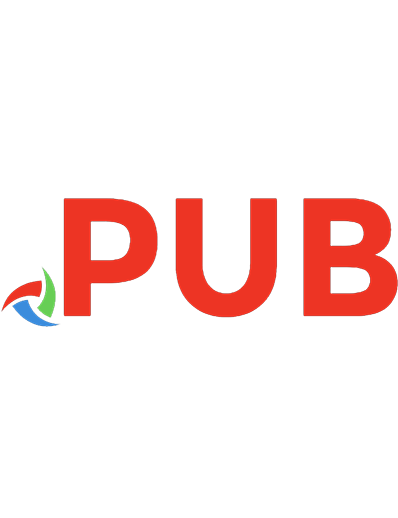Welcome to our article on the intriguing topic of “What Are True Facts?” In a world flooded with information, it can sometimes be challenging to distinguish between what is true and what is not. With the rise of misinformation and fake news, understanding the concept of true facts is more crucial than ever. So, grab a cup of coffee and get ready to embark on a journey to unravel the mysteries behind true facts and discover the fundamental principles that can help us navigate this complex information landscape. Whether you’re a curious individual seeking knowledge or someone striving for clarity in this era of information overload, we’ve got you covered. Let’s dive in!
- Table of Contents
- What Are True Facts?
- 1. Understanding the Nature of True Facts: Separating Fact from Fiction
- 2. Unearthing Truth: The Essential Characteristics of Valid and Reliable Facts
- 3. The Evolving Role of Evidence in Determining True Facts
- 4. Unveiling Curiosities: Fascinating Examples of Verified Facts
- Concluding Remarks
Table of Contents
- What Are True Facts?
- 1. Understanding the Nature of True Facts: Separating Fact from Fiction
- 2. Unearthing Truth: The Essential Characteristics of Valid and Reliable Facts
- 3. The Evolving Role of Evidence in Determining True Facts
- 4. Unveiling Curiosities: Fascinating Examples of Verified Facts
- Q&A
- Key Takeaways

What Are True Facts?
True facts, also known as objective truths, are pieces of information that can be objectively verified and proven to be accurate. They are not influenced by personal opinions or beliefs, but are based on evidence and supported by logical reasoning. True facts provide us with a solid foundation for understanding the world around us and are essential for making informed decisions. Here are some key characteristics of true facts:
- Objective: True facts are independent of personal biases, emotions, or beliefs. They are based on measurable data that can be observed and analyzed objectively.
- Evidence-based: True facts are supported by empirical evidence that has been scientifically tested and verified. This evidence can come from various sources such as experiments, observations, or reputable research.
- Consistent: True facts are consistent with existing knowledge and evidence. They do not contradict established scientific principles or proven theories.
- Verifiable: True facts can be verified through reliable and repeatable methods. They are open to scrutiny and can be confirmed or disproven by others.
While the term “fact” is sometimes used loosely to refer to any statement or claim, true facts go beyond mere assertions. They represent information that has been thoroughly tested, scrutinized, and deemed to be accurate and reliable. Understanding the nature of true facts is crucial in a world where misinformation and fake news can easily spread. By critically evaluating the validity of information and seeking out true facts, we can foster a more informed and knowledgeable society, enabling us to make better decisions and gain a deeper understanding of the world we live in.

1. Understanding the Nature of True Facts: Separating Fact from Fiction
In today’s age of information overload, it is more crucial than ever to develop a keen sense of discernment when it comes to separating fact from fiction. In this section, we will delve into the art of distinguishing true facts from misleading information, equipping you with essential tools to navigate the vast seas of knowledge with confidence.
1. Critical Thinking: Sharpening your critical thinking skills is key to distinguishing fact from fiction. Take a step back and question everything before accepting it as truth. Consider the source, examine the evidence, and evaluate any underlying biases. By critically analyzing information, you can uncover the truth hiding behind a smokescreen of deception.
2. Fact-Checking: The rise of misinformation makes fact-checking an essential practice. While it may be tempting to believe a sensational headline or a friend’s forwarded message, it is crucial to verify the accuracy of the information. Fact-checking websites, such as Snopes or Politifact, can be excellent resources to corroborate or debunk claims. Remember, a little fact-checking can save you from spreading false information and contributing to the propagation of fake news.

2. Unearthing Truth: The Essential Characteristics of Valid and Reliable Facts
Ensuring the credibility and accuracy of the information we encounter is crucial in today’s information age. Understanding the essential characteristics of valid and reliable facts empowers us to make informed decisions and fosters a more knowledgeable society. So, what exactly are these indispensable traits that establish facts as trustworthy and dependable?
1. Accuracy: One of the fundamental traits of valid and reliable facts is accuracy. Facts should be based on thorough research, robust evidence, and reliable sources. Ensuring that information is up-to-date and free from biases or errors is essential. By fact-checking and verifying information from multiple reputable sources, we can be confident that we are dealing with accurate facts.
2. Objectivity: Another vital characteristic of reliable facts is objectivity. Facts should provide an unbiased representation of reality. This means that personal opinions, emotions, or subjective interpretations should not influence the presentation of information. When facts are presented objectively, it allows individuals to formulate their own opinions and interpretations based on a solid foundation of information.

3. The Evolving Role of Evidence in Determining True Facts
The role of evidence in determining true facts has undergone significant changes over the years. As our understanding of the world continues to advance, the methods and standards for establishing what is true have also evolved. In this section, we will explore the key aspects of how evidence is utilized in today’s context.
1. **Integration of scientific research:** Scientific findings play a crucial role in establishing true facts. As new studies emerge, they provide valuable insights that shape our understanding of various phenomena. From fields like medicine and climate science to social sciences and technology, evidence-based research is instrumental in determining the validity of claims and debunking falsehoods.
2.**Data-driven decision-making:** With the advent of the digital age, access to vast amounts of data has revolutionized the way we determine true facts. Through careful analysis of large datasets, patterns and correlations can be identified, enabling us to draw accurate conclusions. Data-driven decision-making has become essential in domains such as business, policy-making, and even personal choices.

4. Unveiling Curiosities: Fascinating Examples of Verified Facts
Get ready to embark on an extraordinary journey through a collection of verified facts that are bound to astonish and captivate your curious mind. Prepare to have your knowledge expanded as we delve into some of the most fascinating revelations that have been extensively researched and verified by experts.
1. Did you know that honey never spoils? Archaeologists have discovered pots of honey in ancient Egyptian tombs that are over 3,000 years old and still perfectly edible! Honey’s low moisture content and acidic pH create an inhospitable environment for bacteria, making it the only food substance that never spoils.
2. The Great Wall of China, often touted as the longest man-made structure in the world, is an architectural marvel that stretches over 13,000 miles. Although its construction began around 2,700 years ago, a verified fact reveals that contrary to popular belief, the Great Wall of China cannot be seen from space with the naked eye. It is only visible from low Earth orbit with the aid of optical instruments.
Concluding Remarks
In conclusion, understanding what true facts are plays a crucial role in the pursuit of knowledge and critical thinking. We have explored the importance of factual accuracy and objective evidence in determining the truthfulness of information. Remember, true facts are not subjective opinions, assumptions, or beliefs, but rather verified and reliable information that can withstand scrutiny and verification.
In our modern age of information overload, it is increasingly necessary to approach every claim with a healthy dose of skepticism, seeking out credible sources and authoritative voices. Developing our skills of information evaluation and fact-checking empowers us to make informed decisions and contribute to a more knowledgeable society.
By recognizing the potential biases, limitations, and motivations behind the information we encounter and by cultivating a commitment to intellectual integrity, we can navigate the vast sea of information and discern true facts from falsehoods.
So, let us continue to question, investigate, and explore the fascinating world of facts, always striving for a better understanding of the truth. Together, we can build a society grounded in reason, evidence, and genuine knowledge.















